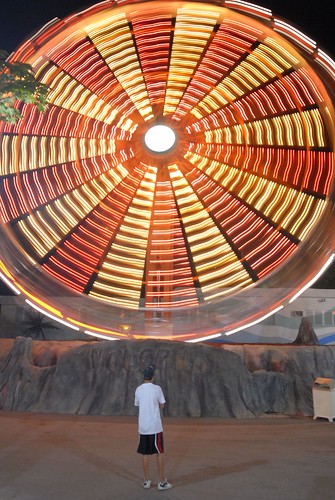Friday, December 10, 2010
Writting about (writting about) photography
My dear friend Robin (who you have and will continue to see photos of) writes her own blog (about her impending wedding next year). She recently wrote – what I consider – an interesting post about being photographed.
Nepotism aside, she has some good advice about that oft-overlooked facet of photography; the subject. If you’re the person typically behind the camera I think it makes for an interesting read. If you’re the kind of person who cares about my long-winded and inane ramblings then there’s good times ahead after the jump…
In my own quest for that all-elusive understanding of this thing we do I get a lot of exposure to the interwebs. Blogs, videos, message boards, you name it. I’m gonna bet you do to. There’s a whole lot of good information out there, mixed in with just as much bad (and I’ll leave it to you, gentle reader, to decide where I fit in). But if there is any overall trend, any one theme that seems repeated more often than not, it’s that photography is technical.
And it is. Always has been I recon. If the internets had been around 50 years ago, I can only imagine the flame-wars that would have erupted over spectral differentials in darkroom safelights. But, in all likelihood, photography has never been more technical than it is now in “the digital age” (oh man, do I feel like a fossil using that phrase). The shear amount of web sites, pages, and just overall information devoted to the technical elements of photography is (frankly) overwhelming. Every stat, spec, function, or parameter you can possibly want to know about practically any piece of equipment is just a Google search away.
And we revel it in. At least I do. I can spend all day looking a charts & graphs detailing chromatic aberration. But at least I’m not the guy who cares about chromatic aberration in the blue channel.
Point is: It’s far too easy to loose yourself in the technical elements of photography and forget that what we’re doing is… photography.
Don’t get me wrong; the technical element are important. Supremely so. But (and I’m going to go out on a limb here) I’m going to bet that the first time you picked up a camera it wasn’t out of a desire to know the difference between Bayer and Foveon filter arrays.
Whenever possible, I try to shy away from the technical elements when I’m writing these posts. Again, they are important; and I detail them when it’s appropriate. But there are literally thousands of places you can go to read about arcane technical details. What I’m much more interested in is the process.
And just to be clear, when I say “process” I’m not (necessarily) talking about some earthy-crunchy “you gotta feel the art, man” thing. Far from it. While it’s often elusive as to how or why; we all start at a place when taking pictures and often end up somewhere quite different. Or we start knowing where we want to go, but end up getting there by wholly unexpected and surprising ways. If anything, what I’m attempting to chronicle here is all the things – little and big – that chain themselves together and occasionally end with that rare result of “Hey, that’s a nice picture.”
In Robin’s post she’s looking at the camera (no pun intended) from a completely different angle. She’s the one in front of the lens, and doesn’t have the burden of all that “stuff” we as photographers struggle with. But that’s doesn’t mean she’s free of burdens of her own – and here’s the part that should blow your mind – her burdens are ours as well. Because without that person, place, or thing in front of our cameras we're just bags of meat with fancy boxes.
I guess that’s a long way of saying simply this: all that gear you have (or wish you had), it’s just a means to an end. I just shot an interesting - well, at least to me - paying gig. I hope to write about it in a few days; but I’m waiting on permission from the client to use the photos. It was a crazy day, with a lot of up’s and downs. And while I ended up learning quite a few lessons – very few of them were about my gear.
A new lens or light isn't going to make me a better photographer. Being a better photographer will make me better photographer. I've got a long, long way to go before I get there; and I'll take any advice that get's me even a little closer. So thanks, Robin, for reminding me that it's the stuff both behind and in front of the camera that makes it all work.
End of line
Subscribe to:
Post Comments (Atom)

No comments:
Post a Comment